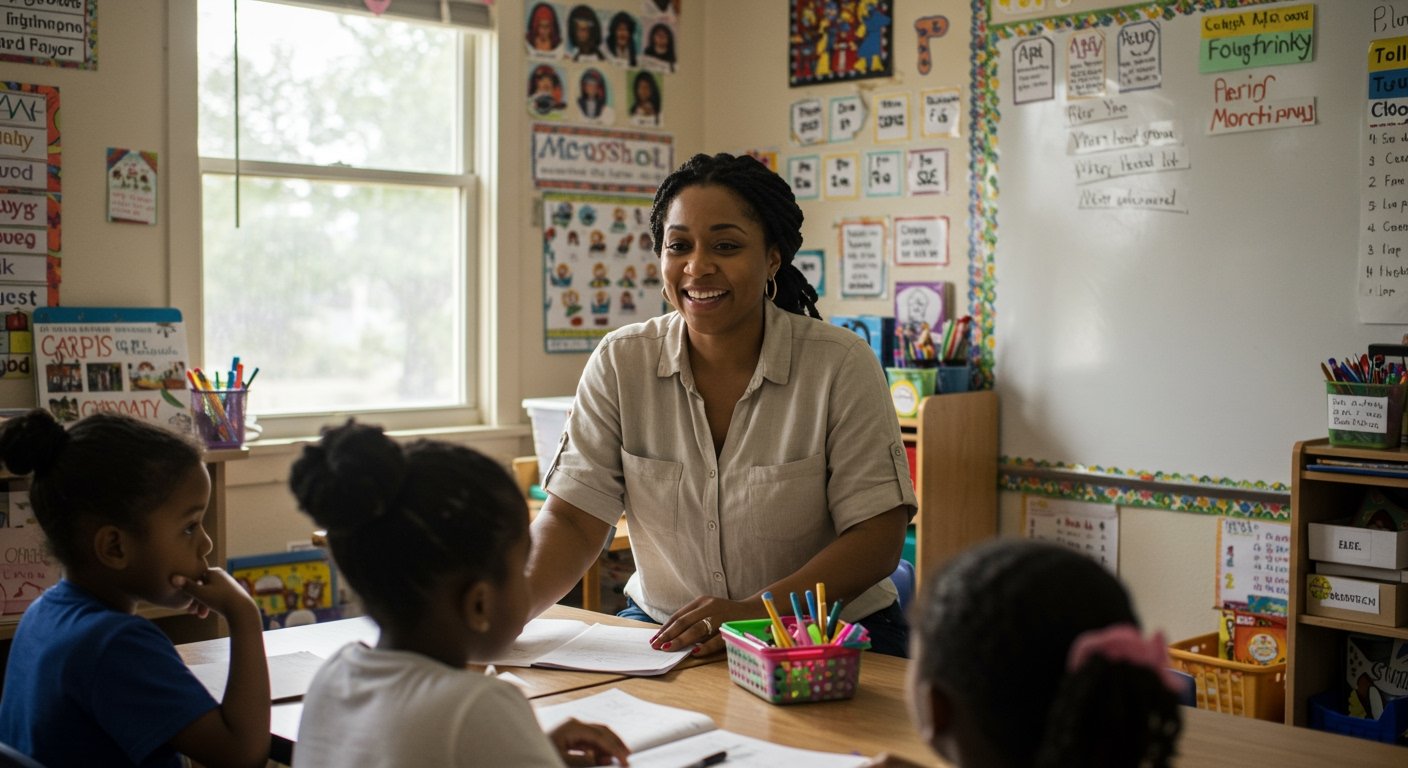April Jackson, a seasoned educator with years of experience traversing classrooms across the Southeastern United States, has embarked on a path outside traditional public education, driven by a profound conviction to create learning environments where Black children can thrive.
Jackson’s journey through schools in states including Alabama, Louisiana, South Carolina, and Georgia revealed a consistent pattern of challenges that she found increasingly untenable. Repeatedly, she observed Black students being overlooked, underserved, and falling through the cracks of a system she felt was not adequately meeting their needs. This sobering reality fueled a growing disillusionment with the conventional educational landscape.
Identifying Systemic Challenges
Among the most critical issues Jackson encountered was a significant disparity in academic readiness and support. She witnessed ninth graders struggling with reading skills typically expected at a third-grade level, a clear indicator, she believed, of systemic failures in early intervention and foundational skill development. Despite identifying these gaps, she often found limited or ineffective intervention strategies being implemented.
Furthermore, Jackson faced significant resistance when attempting to integrate culturally relevant teaching practices into the curriculum. Efforts to include African American literature and history, designed to resonate with students’ backgrounds and identities, were often met with inertia or outright opposition, hindering her ability to create a truly inclusive and engaging learning experience.
The Turning Point: Building, Not Just Navigating
The culmination of these experiences led Jackson to a pivotal realization. While she had previously dedicated herself to helping families navigate the complexities and shortcomings of the existing educational system, the disruption of the COVID-19 pandemic crystallized her belief that a more fundamental change was necessary. It became clear to her that merely assisting others within a flawed structure was insufficient; the focus needed to shift towards building a genuinely better alternative.
This conviction propelled her to leave traditional classroom teaching and establish her own educational initiative: a microschool. These small, independent learning environments offer a stark contrast to large public institutions, typically providing more personalized instruction and flexible structures.
A New Model Takes Root
Jackson’s microschool has steadily grown and is now entering its fifth year of operation. It currently serves approximately 20 students, offering an educational setting designed specifically to address the issues she identified in her prior roles. The smaller scale allows for tailored support, deeper engagement with students’ individual needs, and the implementation of the culturally responsive curriculum she championed for years.
She envisions this microschool as more than an isolated project, referring to the endeavor, and potentially a broader network of similar initiatives, as the “PASS Network.” This branding suggests a focus on empowerment, academic success, and potentially, pathways to future opportunities for the children it serves.
Jackson embraces the title of “edupreneur,” a term that reflects her blend of educational expertise and entrepreneurial drive. This self-identification underscores her proactive approach to addressing educational inequity by innovating and creating new models outside conventional institutional boundaries.
April Jackson’s transition from traditional educator to “edupreneur” and founder of a microschool represents a direct response to perceived systemic failures in serving Black children. Her journey, rooted in specific experiences across the Southeastern United States, highlights the ongoing challenges within established educational structures and signals a growing movement among educators to build alternative pathways they believe are necessary for equity and student success.





